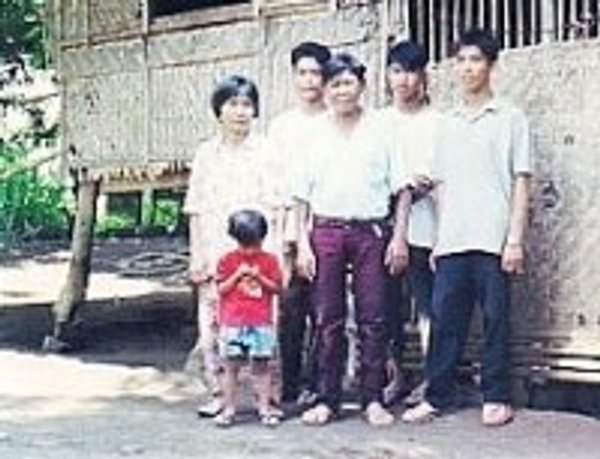Approximately 40 percent of Filipinos are engaged in farming, and the Philippines remains a rural agricultural economy. Moreover, most of these farmers have received only the most rudimentary of education, at most, elementary schooling. Lack of education has been cited as one of the reasons for the continuing poverty of our people. While our government strives to bring the basics of education to the rural areas, it is often hampered by budget problems. However, what I also see as a constraint is the type of education that is brought to our farming communities – higher education is often geared towards usefulness in the more urban settings.
One solution to raise the level of education of families in the rural areas is to provide the children of these farmers schooling that is adapted to the conditions of their environment, rather than the usual curriculum that is intended to prepare them for college education and employment in the cities.
The concept of the Family Farm School system introduced in the Philippines by the Pampamilyang Paaralang Agrikultura, Inc. (PPAI), a non-stock, non-profit foundation whose primary aim is to promote rural development in the country, may be the answer.

The concept of a "Family Farm School" (FFS) is based on three important things: a family, a farm, a school. Such a school is aimed at education, rural development, and growth. The FFS is a unique agricultural school concept patterned after the rural schools of Europe, among them the Spanish Escuelas Familiares Agrarias system and the Maison Familiale Rurales in France. These schools have transformed rural Europe into vibrant rural communities, modernizing agriculture in their countries and making people in the rural areas take responsibility for their own development. FFS are small units of community schools that assist rural areas through relevant education for the youth and their families. FFS operate on four basic principles from which all activities and learning are centered: the participation of parents, the small group of learners, learning by alternation, and rural development.
The PPAI considered the idea of putting up a school that would show the rural community, through the formation of their young people, that farming can be rewarding, and financially too. The school would provide the students with the proper values formation – human/social, intellectual/professional, and not the least, moral/spiritual – in short, a holistic education that addresses the entire being of a human person. Such a school would instill in them a love for farming, while learning the skills and technology for successful farming. It would teach them how to manage agricultural activities as a "business" and thus prepare them for a much better life. The family farm school is service-oriented and development-based.
FFS schools offer a 3-year special secondary curriculum which is equivalent to the 4-year regular secondary program. It is recognized by the Department of Education as a special secondary school, and follows the curriculum for Secondary Education Development Program (SEDP) with special emphasis on agricultural studies.

The subjects are as given in other secondary schools: Filipino, English, Mathematics and Science, Music and Arts and PE and Health, Makabayan (economics, Philippine history and geography, etc.) with one special exception, the addition of another subject – Technology and Livelihood Education (TLE). In TLE, they learn about agriculture, industry, entrepreneurship, and such tools as farm accounting, drafting, word processing and spreadsheets. On top of these academic and practicum learning, the students receive spiritual formation.
Throughout the three years, the students are encouraged to prepare short reports on farming activities, called "PAKSA." On their third year, they undergo an on the job training (OJT) activity in companies that are "collaborators" or "cooperators" in the area. It may be noted that these companies have the highest regard for these OJT students because of the work ethic and good attitudes that have been instilled in them at the FFS. Finally, prior to graduation, they are required to prepare a feasibility study, or a mini-thesis on a topic such as growing vegetables or raising swine," commercially, among other things. They have to defend this "mini-thesis" before a panel and in the presence of their parents.
The PPAI rural formation program calls for the development of the human person in terms of his formation on work attitudes, building the team (as a member of a social grouping, such as the community in which he lives), and to become effective communicators of their learning experience. Through the methodology of alternation, the young people and their parents are made aware of community problems, so that they realize that it is they who have to start the solution and transformation process. The FFS system can be the answer to our festering problem of underdevelopment in the Philippine rural areas.

At present, there are six PPAI schools that follow the FFS system: Three of them in Batangas, namely, Dagatan FFS in Barrio Dagatan, Lipa City, Balete FFS in Barrio Maquina, Balete, Batangas, Talon FFS in Barrio Talon, Tuy, Batangas, and the other three are Bais FFS in Sitio Sab-ahan, Barrio Cantugot, Bais City, Negros Oriental, Pax Christi FFS in Barrio San Aquiino, Roxas, Mindoro Oriental, and Dingle FFS, Barrio Libo-o, Dingle, Iloilo. Incidentally, FFS are either all-boys or all-girls schools.
Perhaps it must be mentioned that one of the more important things that allow PPAI schools to attain their vision and mission, is the fact that they are motivated by a desire to help people live a life of dignity, as human beings created in the image and likeness of their Creator.
